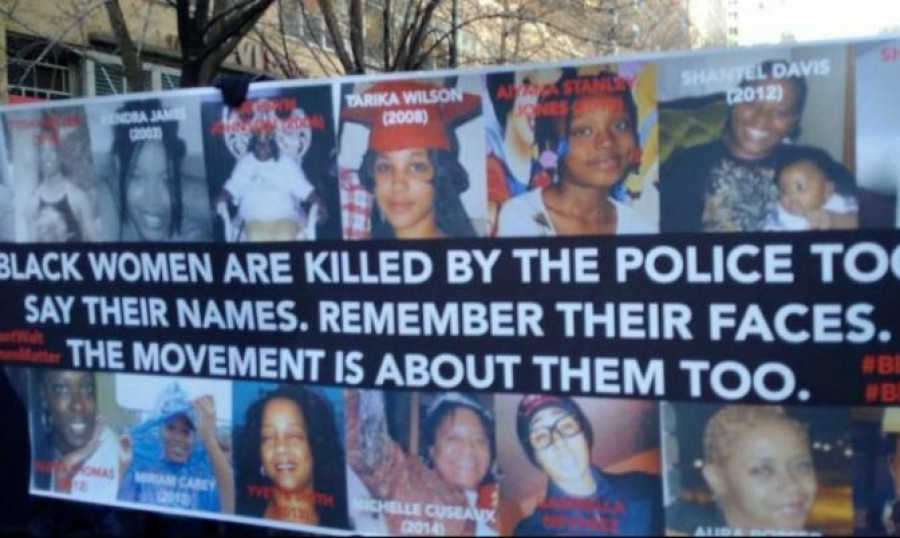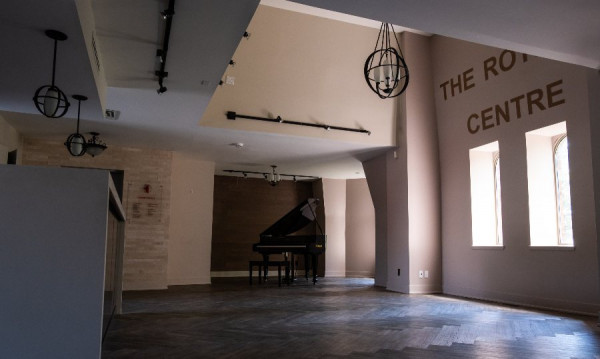This has been most readily apparent through the rapid rise of the Black Lives Matter Movement in this city. This Movement and its supporters have played an important role in ensuring that Canadians don’t forget that racial profiling is still very much a problem in urban centres across Canada.
Until most recently, the attention and discussion surrounding police misconduct and racism focused exclusively on the experiences of Black men. However, as Toronto protestors join the list of communities rising up against police misconduct, there is something missing in the dialogue: where are the experiences and reports of Black women?
Women of colour who have spoken most openly and fervently on behalf of their male family and community members are often at the forefront of the debate surrounding police misconduct. This is especially exemplified by the fact that the founders of the Black Lives Matter Movement, as well as the founders of its Toronto chapter are Black queer and trans*-identified women. Yet, women have also been victimized by the police and often in precisely the same ways as men – police stops, shootings and racial profiling. In addition, they also experience police violence in distinctly gendered-specific ways, such as sexual harassment and sexual assault. Unfortunately, such cases have been overlooked in the national discussions and understandings of racism in policing and broader issues of police accountability nor have they drawn equal media attention or public outrage.
Today, a growing number of activists have been engaged in efforts to refocus the public attention to how police misconduct impacts women of colour, particularly Black women, and others in the margins of this debate, such as the poor, and members of the LGBT community. They are not only highlighting the impact of police misconduct on these communities, but also drawing attention to why a movement such as this must be inclusive. For example, this year’s ‘Take Back the Night’ was led by members of Toronto’s Black community with the specific focus on how Black women and other women of colour, as well as trans* people of colour are greatly affected by violence. On September 26, the ‘Take Back the Night’ march and rally on Dundas Street West addressed sexual violence in all forms, including state violence at the hands of the police.
Additionally, the ‘Say Her Name’ campaign, an initiative launched as a result of the report by the African American Policy Forum at Columbia University, documents and analyzes the stories of dozens of Black women who have experienced police misconduct. The resulting report Say Her Name: Resisting Police Brutality Against Black Women explains what is at risk when we ignore and silence marginalized voices in this national debate concerning police violence. Not only do we miss half of the narrative, but we also fail to grasp how laws, policies and culture are rooted in intersectional levels of oppression and inequality that reinforce police practices such as racial profiling and other forms of anti-Blackness within policing.
How are Black women affected by police violence?
When the recent footage of Illinois native, Sandra Bland’s violent and possibly illegal arrest was released, it emerged as both the latest example of how Black people experience police violence, and a powerful reminder that this violence is not only directed at Black men. Bland was pulled over for a minor traffic violation in Prairie View, Texas and arrested after refusing to put out her cigarette. The situation escalated. The video footage from the dashboard camera of the patrol car that captured Bland’s July 10th arrest shows her repeatedly demanding to know why she was being arrested, being forcefully removed from her car, and ends with her screaming, “you just slammed my head into the ground”. Three days after her arrest, Bland was found dead in her cell.
Bland’s initial encounter with the police is reminiscent of the Toronto case of Sharon Abbott. In 2007, Sharon Abbott, a Black female, was delivering newspapers to a west Toronto neighbourhood when she was stopped by a Toronto police Sergeant. Abbott alleged that she was followed by the officer and eventually pinned down, handcuffed and held for forty-five minutes before he issued her seven tickets under the Highway Traffic Act and released her. As a result of the encounter, Abbott sustained an abrasion over her left eye and cuts on the inside of her upper lip. In Abbott v. Toronto Police Services Board, the Ontario Human Rights Tribunal concluded that Abbott’s race and/or gender played a role in the officer’s failure to take steps to try to de-escalate the situation:
In this case, I have tried to hypothesize White women out delivering papers in early morning having fairly routine traffic matters escalate into an arrest. I have been unable to do so.
Bland and Abbott were driving while Black, and they were not subservient in the manner the officers preferred, a routine traffic stop escalated. Canadian cases like Sharon Abbott or even Ottawa’s Stacy Bonds’ in 2010 represent stories about Black women that have often been erased in the public discussion concerning the social realities of racial discrimination in policing. These cases are also reminders that incidents are not exclusive to Americans, but that Black Canadian women can also be victims of police violence.
Paying attention to how race and gender shape police interaction with women, can, in turn, inform our understanding of racial profiling. It is not productive to try to analyze race and gender separately. Rather, Black women’s identities are always racialized and their racial identities are always gendered. Presently, we know little about how racial profiling is experienced by females. Until we do, as Professor David Tanovich notes, the issue of police misconduct against women of colour will continue to be an under-studied and under-litigated area in Canada.

 By
By 








